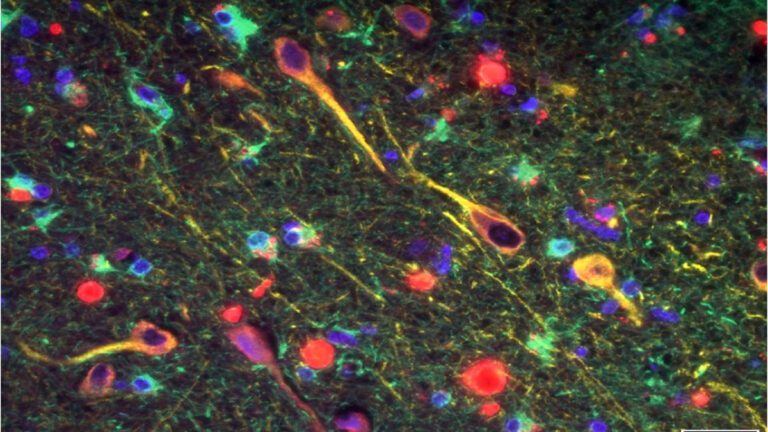
An image of Alzheimer's brain tissue. The red show gingipains, a protein from P. gingivalis, intermixing with neurons (yellow) and glial cells (green)
An Alzheimer's darkhorse fails its first big trial, but offers hope for a long-overlooked hypothesis
Three years ago, Cortexyme emerged out of obscurity with some big-name backers and an unorthodox approach to treating Alzheimer’s.
They moved their drug into …
Sign up to read this article for free.
Get free access to a limited number of articles, plus choose newsletters to get straight to your inbox.